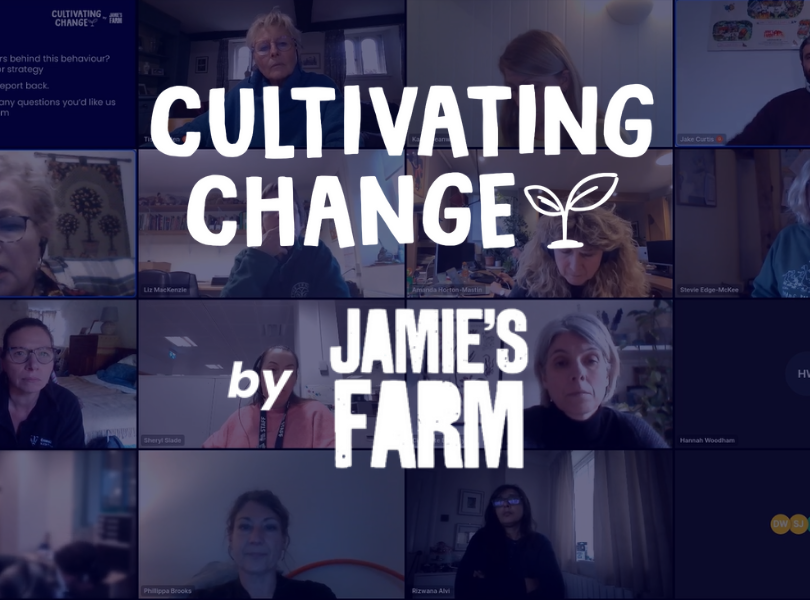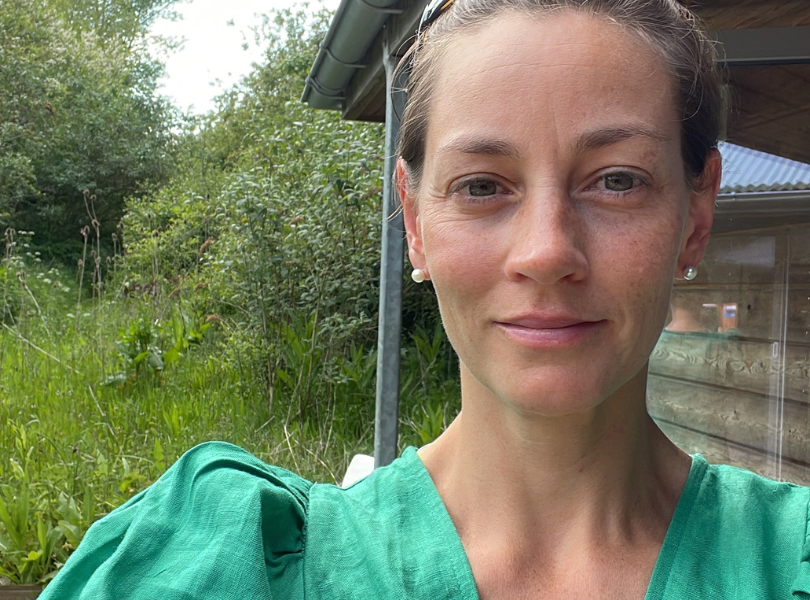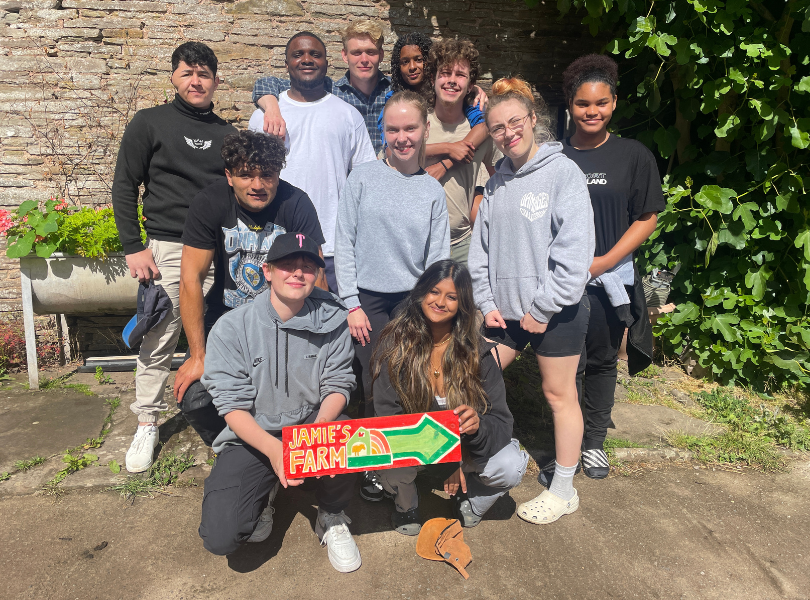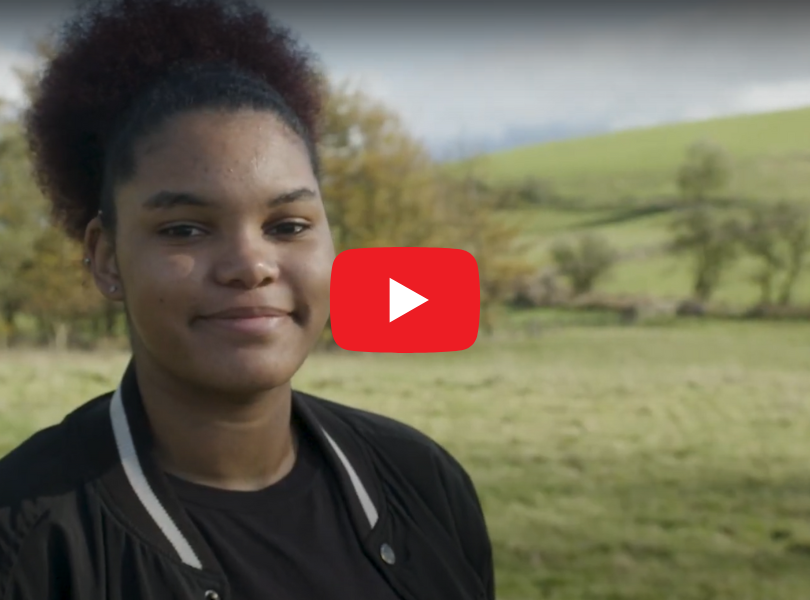Decoding Behaviour Live Workshop
The Cultivating Change team at Jamie’s Farm hosted our first interactive online workshop, attempting to unpick the drivers of challenging behaviour in young people.
Stemming from the success of the 2023 Cultivating Change webinar series, which addressed overarching issues impacting young people, including behaviour management and the wider education sector, the workshop aimed to provide a platform for professionals working with young people to engage directly with both the Jamie’s Farm team and to build a community of practice with fellow practitioners.
With extensive experience of working with over 14,000 young people who were at risk of social and academic exclusion, Cultivating Change – the arm of Jamie’s Farm which supports those working with vulnerable young people, seeks to create a supportive network for educators and practitioners to share best practices and insights. Recognising the challenges faced by professionals working on the front lines of education, the workshop aimed to provide learning, space and a community of practice and to support attendees to help the young people in their care to thrive.
Led by:
- Jake Curtis, Co-CEO at Jamie’s Farm
- Tish Feilden, former Teacher, Psychotherapist and Director of Therapeutic Education at Jamie’s Farm
- Katie Meanwell, Therapy Coordinator and Safeguarding Lead at Jamie’s Farm.
Interactive Sessions
The workshop kicked off with the presentation of three challenging behaviour scenarios submitted in advance by attendees, prompting them to select one for in-depth discussion. Attendees were then divided into breakout rooms to engage in focused conversations.
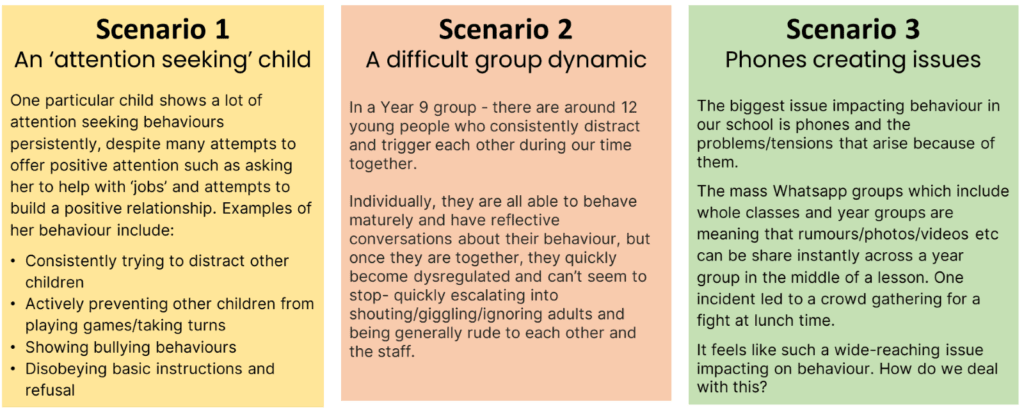
‘Attention seeking’ behaviour
- Participants highlighted the importance of considering the context and age of the young person, addressing psychological needs and identifying triggers for behaviour.
- Strategies included offering designated staff members for individual support and utilising tools such as ABC charts. Solutions also focused on fostering secure attachments and modelling emotional regulation.
Difficult group dynamics
- Discussions centred on creating environments that empower young people to provide opportunities for agency and connection.
- Participants examined drivers of behaviour such as peer pressure and emphasised the importance of understanding each young person’s unique context.
- Strategies included reframing activities to align with a young person’s interests and involving them in the decision-making process.
Phones creating whole school behaviour challenges
- Whilst this particular scenario wasn’t discussed in detail during the workshop, Tish reflected that young people tend to be drawn to drama and can often feel powerless, except for the sense of control phones and social media can give them
- Young people are often growing up with little opportunity to develop social and emotional skills, a sense of positive identity, or commitment to friendship and communities. As a result, they can seem less in tune with the consequences of their actions both online and in real life.
- Thoughts on how we can begin to tackle phones at whole school level included:
- Rather than lecturing or bringing in top-down policies around mobile phones, involve children in resetting ground rules and give them some control and agency. If done in small groups, all young people can be encouraged to contribute to the debate and then have more ownership of the decisions made.
- Children learn through positive reinforcement rather than punishment- so setting up a rewards culture around this issue is key, rather than just administering sanctions.
- Give time and resource to enable a positive sense of purpose and social connection to develop in classes and across the whole school.
Key Takeaways
- The workshop underscored the importance of recognising and celebrating positive behaviours, providing space for young people to navigate their social environments and promoting resilience and agency.
- Participants emphasised the need for educators to connect with young people on a personal level, acknowledging the pressures they face and creating opportunities for fun and engagement.
- Collaboration and support among professionals working with a young person, along with the other adults in their lives, were highlighted as essential elements in navigating behaviour.
As the workshop concluded, participants reflected that they appreciated the opportunity to connect and share insights. Despite the challenges in working alongside young people, there was a shared commitment to bringing the joy and support back into both teaching and the lives of children.
The huge expertise in the room served as a testament to the power of collective knowledge and collaboration in addressing the multifaceted needs of young people.
Thank you to everyone for their valued contributions and for the constructive feedback that will be used to shape future sessions. We are so appreciative of the knowledge-sharing and transparency that is shaping the Cultivating Change community.
We very much look forward to continuing to provide spaces for professionals to engage and share best practice together.
